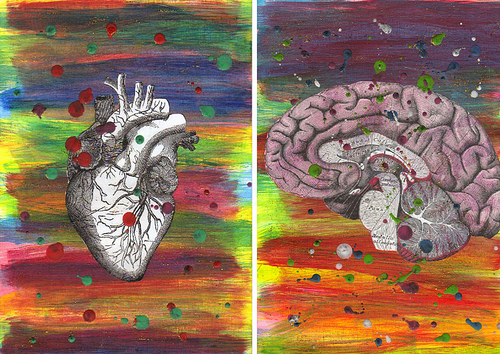Taking high doses of vitamin B12 may delay the symptoms of dementia, according to a new study. For pennies a day, elderly individuals experiencing the beginning signs of Alzheimer’s disease or other types of dementia can sustain brain mass for longer, just by preventing vitamin B12 deficiency.
B12 slows dementia
It’s not the first time that studies have proven the cognitive benefits of vitamin B12 supplementation for people with Alzheimer’s disease, but it flies in the face of various drug companies who have been trying for decades to produce similar results, to no avail.
According to the study just released by the Proceedings of the National Academy of Sciences, the best treatment for dementia includes a three-prong regimen of social activity, exercise, and supplementation of three essential B vitamins- vitamin B12, vitamin B6, and folic acid.
“It’s the first and only disease-modifying treatment that’s worked,” said A. David Smith, Oxford University professor and senior author of the study on vitamin B12 deficiency and Alzheimer’s disease. “We have proved the concept that you can modify the disease.”
Prevent Dementia: 12 Natural Vitamins and Herbs
As of yet, there are no other treatments or medications available that comes close to providing the same results as these three inexpensive B vitamins in delaying the progression of brain atrophy in dementia patients.
B12 controls homocysteine
Among the many roles that vitamin B12 plays in maintaining good health, one of the most significant is its ability to control homocysteine, a protein known to contribute to heart attacks and stroke.
For the study, scientists wanted to prove a link between dementia and homocysteine levels.
- Researchers gathered 156 people over the age of 70 who were experiencing memory loss, and also had high levels of homocysteine.
- Participants were given one of two treatments for dementia: a supplement containing a mixture of vitamin B12, vitamin B6 and folic acid, or a placebo.
- For the following two years, scientists compared MRI brain scan results, along with blood tests confirming homocysteine levels.
- Among people who had very high levels of homocysteine, suggesting vitamin B12 deficiency, brain atrophy advanced at a rate of 5.2% in people who took the placebo.
- Memory loss patients with high homocysteine who were given the vitamin supplements containing vitamin B12, vitamin B6, and folic acid saw only a 0.06% decrease in brain atrophy.
Can B12 deficiency Cause Dementia? Some Helpful Facts
Compare those results to people who don’t have vitamin B12 deficiency or dementia…
Let the numbers speak for themselves
According to Smith, healthy elderly adults without vitamin B12 deficiency begin to experience brain shrinkage from the age of 60, at the rate of about 0.5%.
- High homocysteine, vitamin B12 deficiency- 5.2% brain deterioration.
- High homocysteine, using vitamin B12, vitamin B6, and folic acid- 0.6% brain deterioration.
- Normal homocysteine, normal levels of vitamin B12– 0.5% brain deterioration.
So, with vitamin B12 supplementation, people with high homocysteine levels can slow down the rate of dementia to a rate that is a mere 0.1% higher than individuals of the same age who don’t have vitamin B12 deficiency.
What’s the upshot?
If you have high homocysteine levels, you can reduce your risk of suffering early dementia by taking extra doses of vitamin B12 and other B vitamins, especially if you are already experiencing warning symptoms of vitamin B12 deficiency, including memory loss, fatigue, depression, disorientation, and numbness and tingling.
While it won’t cure Alzheimer’s disease, taking daily vitamin B12 can significantly delay brain atrophy that occurs to all people over the age of 60.
But it’s important to catch vitamin B12 deficiency early. The longer you wait, the more likely you will begin to suffer irreparable cell death and brain atrophy due to elevated homocysteine.
To test for vitamin B12 deficiency, ask your doctor for a blood test. He may prescribe large doses of vitamin B12, beginning with 1,000mcg, although it’s perfectly safe to take as much vitamin B12 as you need to relieve symptoms, as there are no FDA upper limits for vitamin B12 supplementation.
Your turn!
Do you have any questions or suggestions? Please leave your comments below.
Share with your friends!
If you found this article helpful, then please share with your friends, family, and coworkers by email, twitter, or Facebook.
Like this? Read more:
Aging begins at 45- Tips on how to Prevent Early Memory Loss
Here’s Your Brain on B12 Deficiency- Memory Loss and Aging
Sources:
Preventing Alzheimer’s disease-related gray matter atrophy by B-vitamin treatment
Vitamins That Cost Pennies a Day Seen Delaying Dementia
Image courtesy of ohhhbetty/flickr


